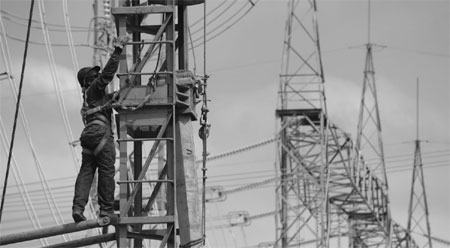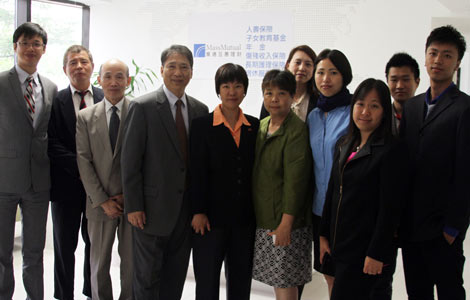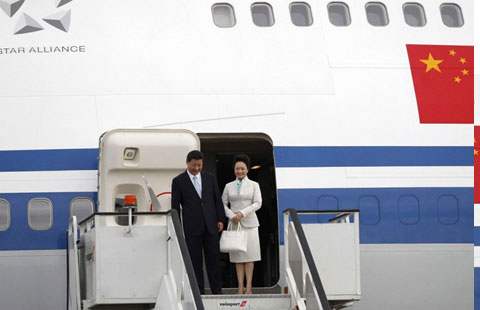China helping Brazil tap into its own energy
Updated: 2014-07-18 13:53
By Zhang Fan in Fortaleza (China Daily USA)
|
||||||||
China's electrical giant State Grid has big plans for Brazil, starting with the Belo Monte dam.
"Besides the Belo Monte dam, we have won other projects totaling 500 megawatts," said Qu Yang, vice-president of State Grid Brazil Holding SA in Rio de Janeiro recently. "Brazil is expected to launch the second stage of Belo Monte dam electricity transportation projects next year and we are very interested,"
In early February, State Grid and Brazil's state-controlled Eletrobras won the bid to build a 2,092 kilometer-long transmission line and converter stations for the Belo Monte dam.
The construction will take 46 months with a total investment of $1.8 billion and a contract that extends for 30 years.
The project is designed to transmit the electricity produced by the Belo Monte dam, with an expected installed capacity of 11,233 megawatts, from Brazil's less developed northern state of Para to the southeast regions where major cities are located and demand for electricity is high.
According to State Grid, the project will employ ultra-high voltage (UHV) power transmission technology and will be China's first overseas UHV project.
UHV technology, according to the International Electric Council, significantly reduces the loss of energy during transmission.
"Brazil enjoys profound hydropower energy but there are large distances between the energy base and load center. China shares a similar situation with Brazil and our UHV projects have proved that such technology can be applied to enhance the efficiency of large-scale and long-distance transmission," said Zhou Xinyu, a researcher at Beijing Foreign Studies University.
China built its first UHV transmission line in 2007, connecting China's commercial center Shanghai and Xiang Jiabei, a remote city in southwestern China along the Yangtze River.
The project covers about 2,000 meters and helped to ease energy pressure on Shanghai and neighboring cities.
"China is devoted to developing such technology and is very experienced in this area, and can help Brazil develop its UHV technology in order to optimize Brazil's energy distribution system," Zhou said.
The Brazilian government has always attached high importance to clean energy development, especially hydropower.
According to the Intergovernmental Panel on Climate Change, 44.8 percent of Brazil's energy was produced by renewable energy in 2011 and the figure is expected to reach 46.3 percent in 2020.
In the 10-year plan for Brazil's energy program from 2011 to 2021, 55 percent of a $60 billion investment will be used to develop the country's hydropower projects, including the Belo Monte.
"It provides a large potential market for China's clean energy companies and can serve as a major step towards these companies entering the international market," said Sun Hongbo, aresearcher in China-Latin American relations at the Chinese Academy of Social Sciences.
Strengthening such cooperation can also benefit Brazil in improving its energy security, said Sun, referring to a recent power blackout that affected 11 states of Brazil.
fanzhang@chinadailyusa.com
|
Employees of China's State Grid Brazil Holding Ltd work on an electric substation expansion project in this file photo taken in July 2013 in Luziania, Brazil. Weng Xinyang / Xinhua |
(China Daily USA 07/18/2014 page3)

 China Argentina sign deal on dams
China Argentina sign deal on dams
 Tango builds bridge to China
Tango builds bridge to China
 Ex-President Carter lauds US-China relations
Ex-President Carter lauds US-China relations
 Chinese president arrives in Argentina for state visit
Chinese president arrives in Argentina for state visit
 Powering the future
Powering the future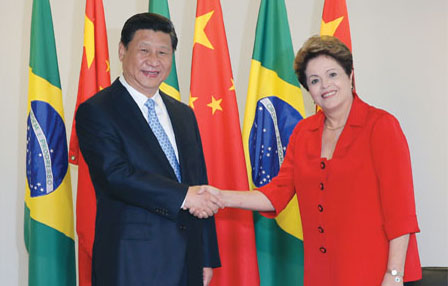
 China, Brazil strengthen close ties
China, Brazil strengthen close ties
 Closer ties between China, US start with students
Closer ties between China, US start with students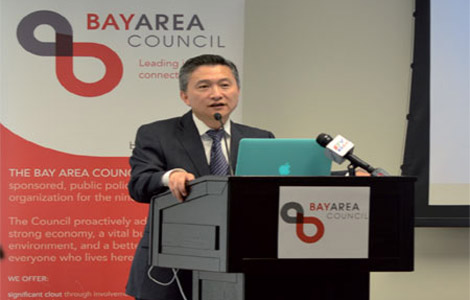
 Chinese banking delegation visits Bay Area
Chinese banking delegation visits Bay Area
Most Viewed
Editor's Picks

|

|

|

|

|

|
Today's Top News
China, Argentina seek closer cooperation
President Xi calls for fair investigation into jet crash
China hit by Microsoft cuts
China 'shocked' at Malaysian plane crash
Portuguese Baidu launched
Security system showcased at BRICS summit
China helping Brazil tap into its own energy
Malaysian airliner downed in Ukraine, 295 dead
US Weekly

|

|
